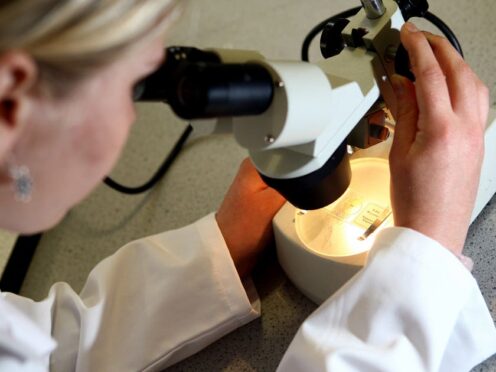
Thousands of people across the United Kingdom will have access to trials that could revolutionise the diagnosis of Alzheimer’s.
The blood tests could be ready for use in the NHS within five years as part of a drive to address the nation’s low diagnosis rate.
University College London and Oxford University will lead the trials to research the cheap tests for proteins in people with early stages of dementia and those who have mild or progressive problems with memory.
The trial could make the diagnosis of Alzheimer’s more accessible, with currently just 2% of people able to access tests like PET scans or lumbar punctures, which are only available in around one in 20 NHS memory clinics.
Fiona Carragher, director of research and influencing at the Alzheimer’s Society, said: “Dementia is the UK’s biggest killer, yet a third of people living with dementia don’t have a diagnosis, which means they’re not able to access care and support.
“At the moment, only 2% of people with dementia can access the specialised tests needed to demonstrate eligibility for new treatments, leading to unnecessary delays, worry and uncertainty.
“Blood tests are part of the answer to this problem – they’re quick, easy to administer and cheaper than current, more complex tests. I’ve spent decades working in research and the NHS and, after years of slow progress, it feels like we’re on the cusp of a new chapter on how we treat dementia in this country.”
The research teams make up the Blood Biomarker Challenge, sponsored by Alzheimer’s Research UK and the Alzheimer’s Society with £5 million of funding from the People’s Postcode Lottery.
The tests could provide results to patients much sooner and accelerate the introduction of new Alzheimer’s drugs that rely on early diagnosis.
Dr Sheona Scales, director of research at Alzheimer’s Research UK, said: “We’ve seen the enormous potential that blood tests are showing for improving the diagnostic process for people and their loved ones in other disease areas. Now we need to see this same step-change in dementia, which is the greatest health challenge facing the UK.
“It’s fantastic that, through collaborating with the leading experts in the dementia community, we can look to bring cutting-edge blood tests for diagnosing dementia within the NHS. And this will be key to widening access to groundbreaking new treatments that are on the horizon.”
Jonathan Schott, chief medical officer at Alzheimer’s Research UK, will lead a trial on the most promising blood biomarker in tests on 1,100 people across the UK.
His University College London (UCL) team will focus on the most promising biomarker for Alzheimer’s disease, called p-tau217, which can indicate levels of amyloid and tau in the brain.
Its trial will see if measuring p-tau217 in the blood can increase the rate of diagnosis for Alzheimer’s disease in people with early dementia, but also those with mild but progressive memory problems.
The second trial, headed by Dr Vanessa Raymont, from Oxford University, will cover new and existing blood tests on nearly 4,000 people, testing multiple forms of dementia, including Alzheimer’s disease, vascular dementia, frontotemporal dementia and dementia with Lewy bodies.
More than 944,000 people in the UK have dementia, a figure expected to rise to more than a million by 2030.

Enjoy the convenience of having The Sunday Post delivered as a digital ePaper straight to your smartphone, tablet or computer.
Subscribe for only £5.49 a month and enjoy all the benefits of the printed paper as a digital replica.
Subscribe